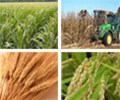

Argentina’s farming leaders on Monday called on the government to review what they called interventionist policies in the sector, including export caps on beef and grains taxes, following a primary election that badly bruised the ruling party.
President Alberto Fernandez’s center-left government was badly beaten https://www.reuters.com/world/americas/argentines-head-polls-litmus-test… in the midterm congressional primary election on Sunday, which is likely to force a political rethink ahead of the full vote in November.
Leaders of two of the country’s main agricultural bodies told Reuters that the election underscored the need for the government to rebuild bridges with farmers following clashes over the last year, especially over limits on exports of meat.
Argentina is the world’s top exporter of processed soymeal and soybean oil, and a major producer of wheat, corn and beef. The country relies heavily on its farm exports to bring in much-needed foreign currency to rebuild depleted reserves.
“I think now they will have the motivation to change their minds, to rebuild the situation and not deepen the confrontation with the farm sector,” said Argentine Agrarian Federation (FAA) President Carlos Achetoni.
The government has limited beef exports since May in a bid to tamp down domestic inflation, taken more direct control over tolls on a key grains waterway amid opposition from the sector, and threatened tax hikes on grains shipments.
“(Sunday’s result) encourages me to think the government is starting to pay attention to measures that are being carried out with the farm sector and to see that they are wrong,” said Jorge Chemes, head of the Argentine Rural Confederations (CRA).
RURAL PROTEST
Argentina’s powerful Peronist party has historically clashed with farmers, though Fernandez had pledged a more cordial relationship when he swept into power in 2019.
However, earlier this year the government temporarily imposed quotas on corn exports and threatened to raise taxes on wheat shipments, triggering protests. Farmers have recently threatened new protests over the beef export limits.
Chemes said, however, that the possibility of more dialogue after the election defeat could defuse the recent threats if the government came back to the table. Achetoni, meanwhile, said a thaw in the relationship would only happen with concrete and supportive measures from the government.
Both agreed that the country’s farming groups would reach a decision at the end of this week on new coordinated action.
“We feel some relief in the level of pressure, especially considering the possibility that this government reflects on things,” said Chemes.
“But without a doubt if the government doesn’t reconsider things, the measures on our part are going to intensify.”
Source: Reuters (Reporting by Maximilian Heath; Editing by Adam Jourdan and Jonathan Oatis)